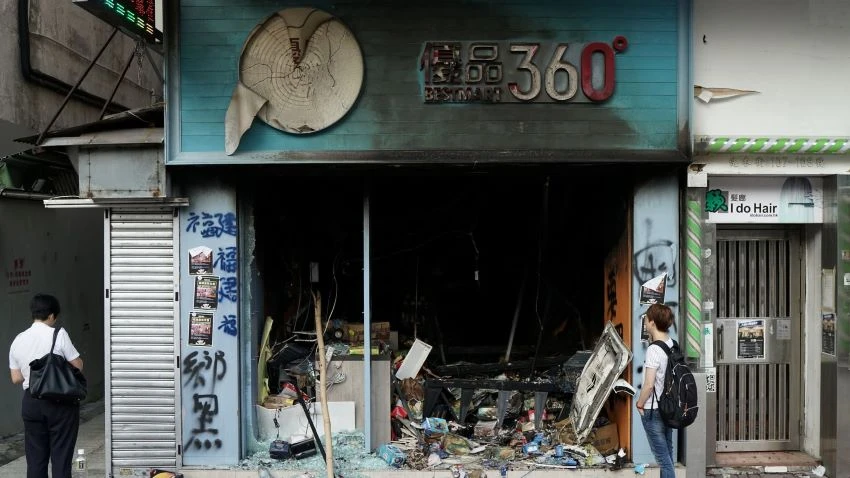
A wide swath of businesses in Hong Kong are suffering blows to earnings from pro-democracy protests, forcing some to change strategies in the face of no clear end to the unrest.
Drugstore operator Sa Sa International Holdings made a surprise announcement to analysts on Nov. 21 that it would close 30 locations across Hong Kong, about a quarter of its presence in the city.
About 7.5 million people live in Hong Kong. But much of the city's economy has been propped up by Chinese tourists in recent years. About 80% of the roughly 65 million visitors to Hong Kong came from the mainland in 2018.
Sa Sa's stores rely heavily on mainlanders visiting Hong Kong to shop, but their numbers have been sinking since July as the protests drag on. The company logged a net loss of 36.5 million Hong Kong dollars ($4.66 million) for the April-September half, its first time in the red for the period since the Asian financial crisis in 1998.
Meanwhile, Cathay Pacific Airways announced Nov. 14 that it will delay receiving four Airbus aircraft from the planned 2020. Passengers decreased on the year for the third month in October and are not expected to recover for some time.
"It is unusual for an airline to defer new aircraft at this time, when demand for travel is growing across the world," an industry insider said.
Overall, visitors to Hong Kong plunged 39% on the year in August and 34% in September -- the biggest drops since May 2003, during the outbreak of severe acute respiratory syndrome, or SARS.
Occupancy at the iconic Peninsula Hong Kong fell as low as 35% in the July-September quarter. Average room rates sank 11% on the year to HK$4,857, with revenue per room halving to a record low of HK$1,692.
With mainland traffic down more than 30% this summer, Hong Kong retail sales dropped by a 20-year record of 23% on the year in August.
Chow Tai Fook Jewellery Group -- one of the world's top jewelry sellers, with many fans among mainlanders -- suffered a 42% plunge in sales at existing stores in Hong Kong and Macao for the July-September quarter.
Clothing seller Esprit Holdings suffered a 15% drop in July-September revenue. Hong Kong Disneyland's operating income fell by $55 million that quarter, an almost 10% dent to the full-year tally.
For certain businesses, the harm has been physical. Demonstrators damaged 59, or about 60%, of shops run by Best Mart 360 Holdings, perceived by some as leaning closely toward Beijing. Starbucks and Genki Sushi locations were vandalized after a daughter of a co-founder of operating company Maxim's Group criticized the protests.
The U.S.-China trade war was already slowing the Hong Kong economy before the protests. The city's real gross domestic product is expected to shrink for the first time since 2009 this year, by 1.3%.
Meanwhile, Beijing is working to strengthen its grip over Hong Kong's economy. Executives from 100 state-run companies were summoned in September to Shenzhen, where they reportedly discussed ways to take control of more Hong Kong companies and increase investment in the city.




















